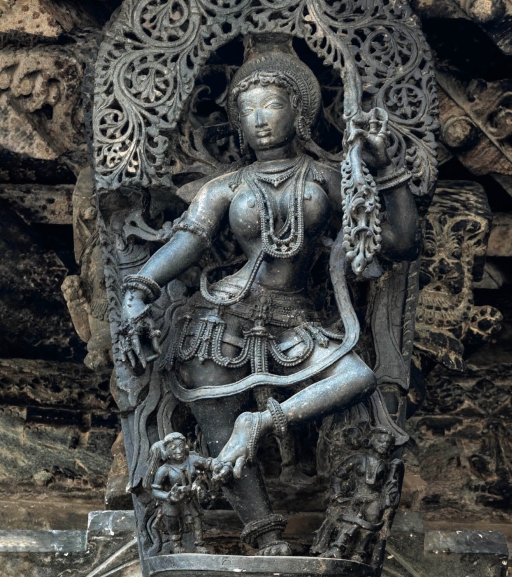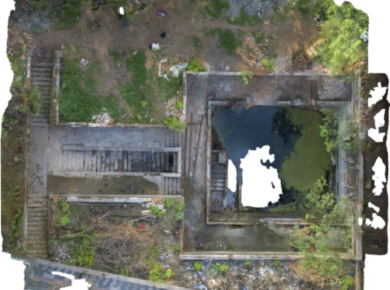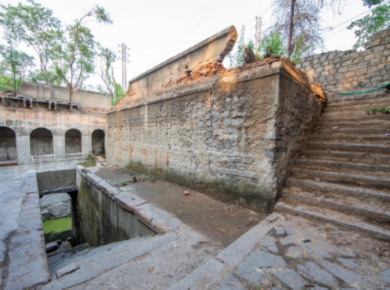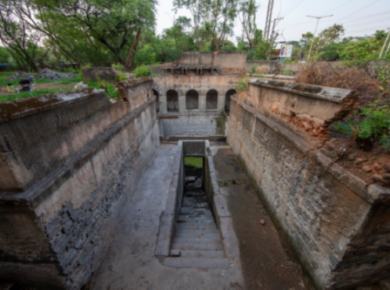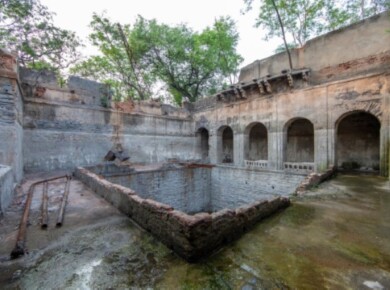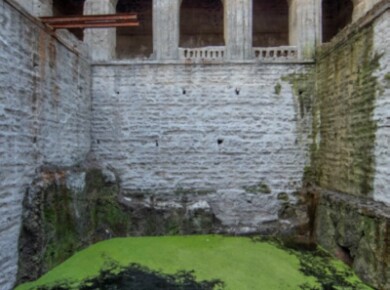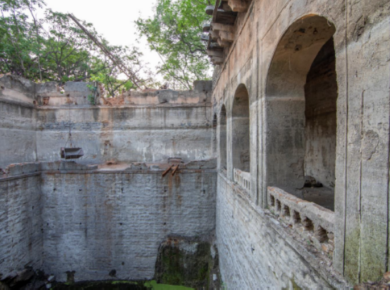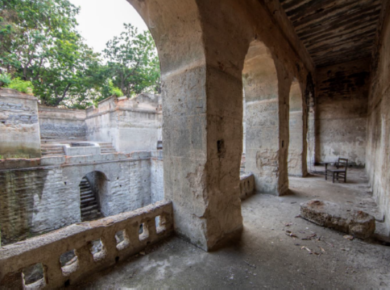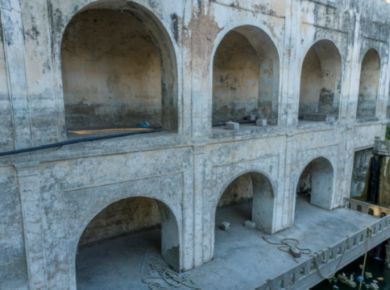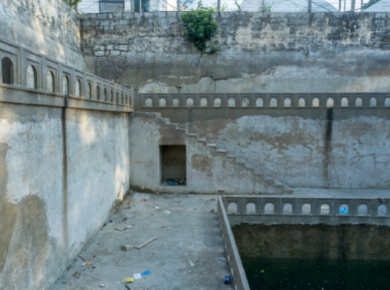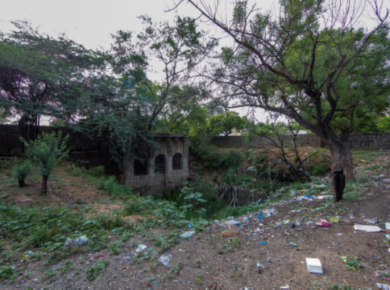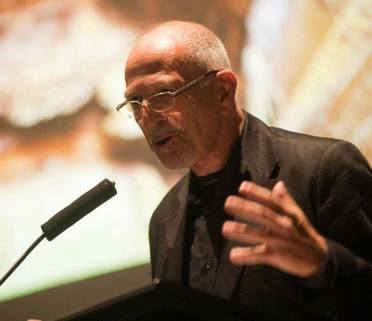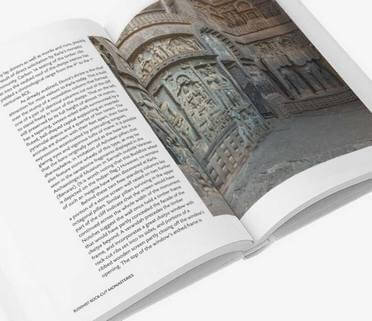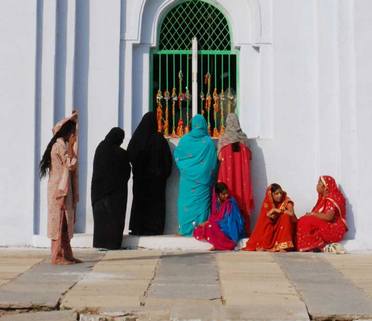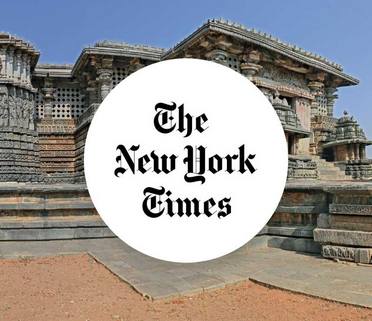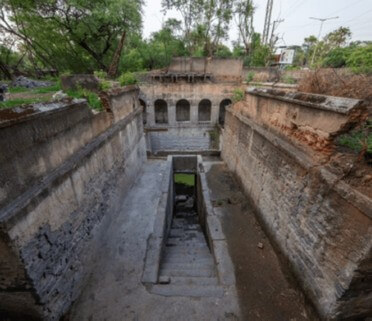Stepwells at Osmania University: Restoration of Three Heritage Water Systems (Hyderabad, Telangana)
This project will alleviate water scarcity and rehabilitate an entire ecosystem within a watershed area
Historic Background
There are three historic stepwells on the campus of Osmania University which are currently in a dilapidated state due to years of neglect; they are the stepwells at the Education Department, the English and Foreign Languages University (EFLU) Campus, and the Adikmet colony.
These ancient water structures were part of a historic estate belonging to the erstwhile royal family associated with Mah Laqa Chanda Bai, a famous female poet, singer, and political advisor at the court of the second and third Nizams of Hyderabad.
In those days, the stepwells were used to support the drinking water needs of the royal estate during the dry season, while their surroundings served as places for cultural performances and social gatherings. Due to rapid urbanization around the campus and expansion of the University starting in the mid-20th century, the ground water was depleted, and the stepwells fell into disrepair. The bores dug by the University could not meet its water needs.
Importance of Stepwell Restoration for the University Community
The revival of these historic stepwells is very important in the context of heightened water scarcity and increased need for resource conservation. Once restored, these water systems would not only meet the modern-day needs of the University, but they would also recharge the ground water. Research and mapping conducted by The Rainwater Project and SAHE show that all these stepwells are connected through subterranean aquifers which could be revived to meet the water needs of the community.
In addition to the functional aspect, these stepwells also have significant architectural features that deserve to be saved, such as beautiful arcades with corridors and multiple terraces connected by stairways.
Problematic Condition of the Stepwells
Multiple issues affect these stepwells, including:
- Debris and garbage deposits built up over many decades.
- Vegetation overgrowth
- Soil and silt deposits which have closed the natural aquifer, the water source.
- Deteriorated architectural elements such as broken parapets and stairways.
- Loss of plaster, cracks in vaults, broken masonry, etc.
Stepwell Restoration Proposal
The revival of the stepwells will proceed in three stages, as follows:
- Cleaning, dewatering, desilting, and waste removal – to revive the natural source of water, the subterranean aquifer.
- Restoring the architectural integrity and original finishes of the heritage structures.
- Refurbishing the areas around the stepwells for adaptive reuse, to make the spaces relevant for modern needs.
Benefits of the Project
This project will have multiple benefits for the University community and surrounding areas, namely:
- Conservation of historic water structures
- Water resource management
- Meeting drinking water needs
- Flood mitigation
- Sustainable economic redevelopment
Collaboration of two NGOs and Osmania University
The Project proposal is initiated by The Rainwater Project in collaboration with Deccan Heritage Foundation with full support of Osmania University.
Budget
- The total cost is estimated at USD $349,000, as shown below.
- The Adikmet and Education Department stepwells are already funded by a donor. USD $ 192,000 is being sought for restoring the stepwell on the EFLU Campus.
| Name of stepwell | Estimated cost | ||
| (INR) | (USD) | ||
| 1. | Stepwell at Education Department | 1,03,26,300 | 124,413 |
| 2. | Stepwell at EFLU Campus | 1,59,36,000 | 192,000 |
| 3. | Stepwell at Adikmet colony | 27,00,000 | 32,530 |
- Revival of all three stepwells will lead to the restoration of a holistic ecosystem within one watershed area.
- The revival of the EFLU stepwell will provide water for the hostels and gardens within the campus, including the possibility of making potable water using a water treatment system.
Details

Project Status
Planned

Location
Hyderabad, Telangana

Partners
The Rainwater Project
Osmania University
The Telangana State Government

Community
Conservation of historic water structures
Water resource management
Meeting drinking water needs
Flood mitigation
Sustainable economic redevelopment

Support Overview
The Adikmet and Education Department stepwells are already funded by a donor. An amount of $192,000 is being sought for restoring the stepwell in the EFLU Campus.

